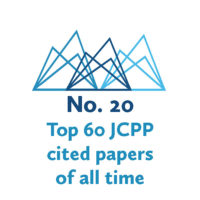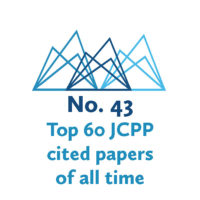Social class
-

Why do some children from low-income families manage to thrive cognitively?
Why do some children from low-income families manage to thrive cognitively? Our study sheds light on this question by identifying key factors that promote cognitive resilience. Blog by Dr. Divyangana Rakesh.
Read more -

Where you live matters: visualizing environmental effects on reading attainment
Paper from the JCPP – ‘This study investigates the extent to which SES and geographical location interact to moderate the genetic and environmental components of reading attainment.’ Jeffrey A. Shero (pic) et al.
Read more -

Concurrent and prospective associations between family socioeconomic status, social support and salivary diurnal and hair cortisol in adolescence
Paper from the JCPP – ‘This study examined the role of stability and changes in family socioeconomic status (SES) in the prediction of multiple cortisol indicators and tested whether social support moderated these associations.’ Christina Y. Cantave (pic) et al.
Read more -

Socioeconomic status and risk for child psychopathology: exploring gene–environment interaction in the presence of gene–environment correlation using extended families in the Norwegian Mother, Father and Child Birth Cohort Study
Open Access paper from the JCPP – ‘We applied a novel approach using extended family data to investigate the moderation of aetiological influences on child emotional and behavioural problems by parental socioeconomic status in the presence of modelled gene–environment correlation.’ Isabella Badini (pic) et al.
Read more -

Social gradient in use of health services and health-related quality of life of children with ADHD (Attention-Deficit/Hyperactivity Disorder): A systematic review
Open Access paper from JCPP Advances – ‘This study aims to systematically synthesise evidence of equity and equality in health service use/costs and health-related quality of life (HRQoL)/wellbeing of children with ADHD across socioeconomic (SES) classes.’ Abraham Sevastidis et al.
Read more -

ACEs – Adverse Childhood Experiences
Adverse Childhood Experiences (ACEs) are defined as situations that lead to an elevated risk of children and young people experiencing damaging impacts on their health and other social outcomes across the life course.
Read more -

How useful are Ofsted ratings for predicting educational outcomes and wellbeing at secondary school?
“The factors parents care about most when selecting a school – their child’s educational achievement and wellbeing – are negligibly predicted by Ofsted ratings”, says Sophie von Stumm, lead researcher of a new study published in the Journal of Child Psychology and Psychiatry.
Read more -

Can population registry data predict which children with ADHD are at risk of later substance use disorders?
The first study to examine the potential of machine learning in early prediction of later substance use disorders (SUDs) in youth with ADHD has been published in the Journal of Child Psychiatry and Psychology.
Read more -

Most Cited JCPP Articles #20 of 60
Most cited JCPP papers #20 of 60: When more is not better: the role of cumulative risk in child behavior outcomes
Read more -

Most Cited JCPP Articles #43 of 60
Most cited JCPP papers #43 of 60: Preventing conduct problems and improving school readiness: evaluation of the Incredible Years Teacher and Child Training Programs in high‐risk schools
Read more